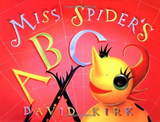
In this lesson, students will explore the outdoor classroom finding objects and determining the first letter.
- Subject:
- English Language Arts
- Material Type:
- Lesson Plan
- Author:
- Out Teach
- Date Added:
- 07/22/2021

In this lesson, students will explore the outdoor classroom finding objects and determining the first letter.

Students will explore the outdoor classroom finding objects and determining the first sound.
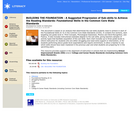
This document is based on an analysis that determined the sub-skills students need to achieve in each of the Foundational Skills (K–5) in the Common Core State Standards (CCSS). It contains five sections, each targeting one grade level in: Print Concepts, Phonological Awareness, Phonics and Word Recognition, and Fluency. It also includes instructional examples aligned to the sub-skills, giving teachers samples of activity types that facilitate acquisition of the sub-skills. Each chart includes up to three grade levels to inform instruction for students who are either struggling and need extra support or intervention, or for students performing above grade-level expectations and require enrichment, to allow a teacher to see which skills should have been mastered in the previous year and what students are preparing for in the upcoming years.
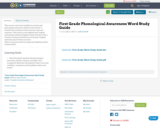
This resource has been modified to include only phonological awareness skills for First Grade. It includes the teaching routines and the scope and sequence.
This resource was adapted from original materials provided by Highline Public Schools under a Creative Commons Attribution 4.0 License. Original materials may be freely accessed {https://www.oercommons.org/groups/highline-public-schools/4167/}.
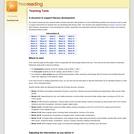
FreeReading is an open source instructional program that helps educators teach early literacy. Because it is open source, it represents the collective wisdom of a wide community of teachers and researchers. FreeReading contains, Intervention A, a 40-week scope and sequence of primarily phonological awareness and phonics activities that can support and supplement a typical kindergarten or first grade "core" or "basal" program.
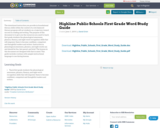
The intentional instruction you provide in foundational literacy skills within the context of a rich balanced literacy program will set students on a trajectory toward success in reading and writing. The purpose of this document is to give you the resources you need to teach first grade students the phonological awareness, phonics, fluency, and sight-word-recognition skills that will empower them to become confident, competent and thoughtful readers and writers. Instruction in phonological awareness, phonics, and sight words can and should be fun, fast-paced, and brief. The lessons in this document are designed with that in mind. This guide includes routines with sample instructional language to use during lessons
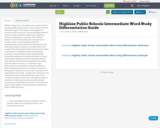
While we hope that most students have mastered basic decoding skills by grade three, some students will need additional support. The purpose of this guide is to provide resources for you to assess and differentiate for students’ needs in phonics, sight word recognition, fluency, and phonemic awareness. This will help students to meet the foundational standards in the Common Core, to meet reading standard 10 (independently read complex text at grade level), and most importantly, to become successful readers and scholars. The primary goal of the instructional activities in this guide is to support students in developing proficiency and automaticity with decoding skills. Decoding (reading) and encoding (writing) are closely related skills, and the activities in this guide address both. Because of the pivotal and primary role reading plays in academic success, you will want to pay particularly close attention to students’ proficiency with decoding and fluency.
As a teacher of students in third grade or beyond, you won’t want to provide whole-class phonics instruction – though more advanced word study such as word analysis should be a part of your curriculum. Rather, you’ll want to identify the needs of individual students and meet those needs through small group and individual instruction. This is because many of your students will already have mastered the phonics skills they need.
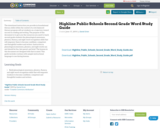
The intentional instruction you provide in foundational literacy skills within the context of a rich balanced literacy program will set students on a trajectory toward success in reading and writing. The purpose of this document is to give you the resources you need to teach second grade students the phonological awareness, phonics, fluency, and sight-word-recognition skills that will empower them to become confident, competent and thoughtful readers and writers. Instruction in phonological awareness, phonics, and sight words can and should be fun, fast-paced, and brief. The lessons in this document are designed with that in mind. This guide includes routines with sample instructional language to use during lessons.
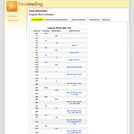
FreeReading is an open source instructional program that helps educators teach early literacy. Because it is open source, it represents the collective wisdom of a wide community of teachers and researchers. FreeReading contains Irregular Word Activities, a page of sequential and supplemental activities that helps teachers teach students to read 30 high-frequency irregular words.
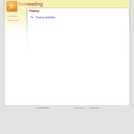
FreeReading is an open source instructional program that helps educators teach early literacy. Because it is open source, it represents the collective wisdom of a wide community of teachers and researchers. FreeReading contains Reading Connect Text Activities, a page of sequential and supplemental activities that helps teachers teach students to decode their first sentences in print.
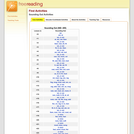
In Sounding Out activities, students take a regular word, such as sat, produce the letter-sound pattern "sssaaat," and blend to produce the word sat. This is a crucial development in learning to read, bringing together skills that students have spent many weeks working on and providing the first excitement of reading unaided. Being able to sound out regular words also provides students with a self-teaching capability: they can decode unaided words they do not yet recognize on sight.
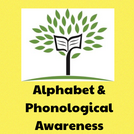
This module focuses on best practices for instruction on alphabet knowledge and phonological awareness. Explicit Instruction and the Cycle Approach to teaching letters and sounds are highlighted. Instructional strategies and tools to extend literacy instruction to students with complex communication needs and physical disabilities are discussed. English Language Art Common Core Standards are provided, along with research on instructional strategies to address the standards.